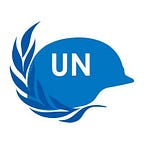Communities at the heart of efforts to address sexual exploitation and abuse by UN personnel
By: Eeman Malik
“We know who to contact and how to file a complaint when we become aware of incidents of sexual exploitation and abuse by United Nations personnel,” says Patience Mapenzi, a student in Bunia, located in Eastern Democratic Republic of the Congo (DRC).
Ms. Mapenzi is one of the many young people that the United Nations mission in the DRC, MONUSCO, continues to engage on the organization’s standards of conduct for its personnel and the procedures involved in reporting misconduct, including through the local community-based complaint network (CBCN).
In his latest report on the Special measures for protection from sexual exploitation and abuse, the UN Secretary-General, António Guterres, reiterated the importance of “a victim-centred policy on the prohibition of sexual exploitation and abuse, along with (…) complaint and reporting mechanisms”.
Because CBCNs have the advantage of proximity to victims, understand local customs and dialects, and are more informal, compared to formal approaches provided by a UN hotline or office, for instance, victims are comfortable speaking with these trusted community members. For this reason, the United Nations has, since 2015, collaborated with such local partners and leaders to effectively address sexual exploitation and abuse by its personnel.
“Internal measures will not be enough to eradicate wrongs committed. It is important to involve the communities in fighting them,” says Adama Ndao, the head of the UN mission’s Conduct and Discipline Team in the Central African Republic.
In the DRC, up to 1200 community members, including 41% women, make up these networks in six high-risk regions: Bukavu, Beni, Bunia, Goma, Kalemie and the capital town of Kinshasa. In the Central African Republic, while up to one thousand people are involved in 34 different networks across the country, five new networks are also in the works. In South Sudan, there are five CBCNs located near where the UN mission, UNMISS, is present, namely in Aweil, Kuajok, Rumbek, Torit and Yambio.
CBCNs are generally made up of influential community members living in the vicinity of UN bases such as religious and traditional leaders, school teachers, mayors and women activists like Basilienne Zawadi Bagaya, who heads the local network in Kavumu, an area also located in Eastern DRC. “I can help improve the life of a woman who has been marginalized and abandoned,” stressed Basilienne. “Because I know how to talk to them, since we are a grassroots group and represent the community.”
Members of local networks like the one Basilienne leads act as crucial intermediaries between communities, victims, and the UN to raise awareness of the standards of conduct for UN personnel, provide guidance on reporting misconduct, and connect victims to the UN, so that their complaints can be appropriately addressed.
With training and support provided by peacekeeping missions based in their respective localities, the CBCNs plan and organize sensitization campaigns that respond to local interests and habits. As part of the campaigns, they engage local dance and theatre groups, local radio stations and opinion leaders, who are all instrumental in effectively delivering messages on the standards of conduct for UN personnel, as well as protection for victims of sexual misconduct in local languages.
These campaigns attract a wide range of local audiences, including women who attend with their children. Sometimes, victims come forward to share their experiences when inspired by messages delivered through role-play and the presence of their peers: “We discovered through our activities that a number of survivors are here, who were victims of sexual exploitation and abuse,” informs Marie Zaire Baguma, president of a CBCN in Bunia, Eastern DRC.
Community leaders also help with identifying project beneficiaries of the Trust Fund in Support of Victims of Sexual Exploitation and Abuse. The Fund supports income-generating opportunities for victims of sexual misconduct by UN personnel, including children born as a result of such misconduct. It also supports other community members who are vulnerable and at risk of sexual exploitation and abuse.
Members of CBCNs continue to support the reintegration of victims of sexual misconduct into their communities, first, by providing victims with desperately needed information, and connecting those interested to organizations that implement relevant projects on behalf of the Trust Fund.
